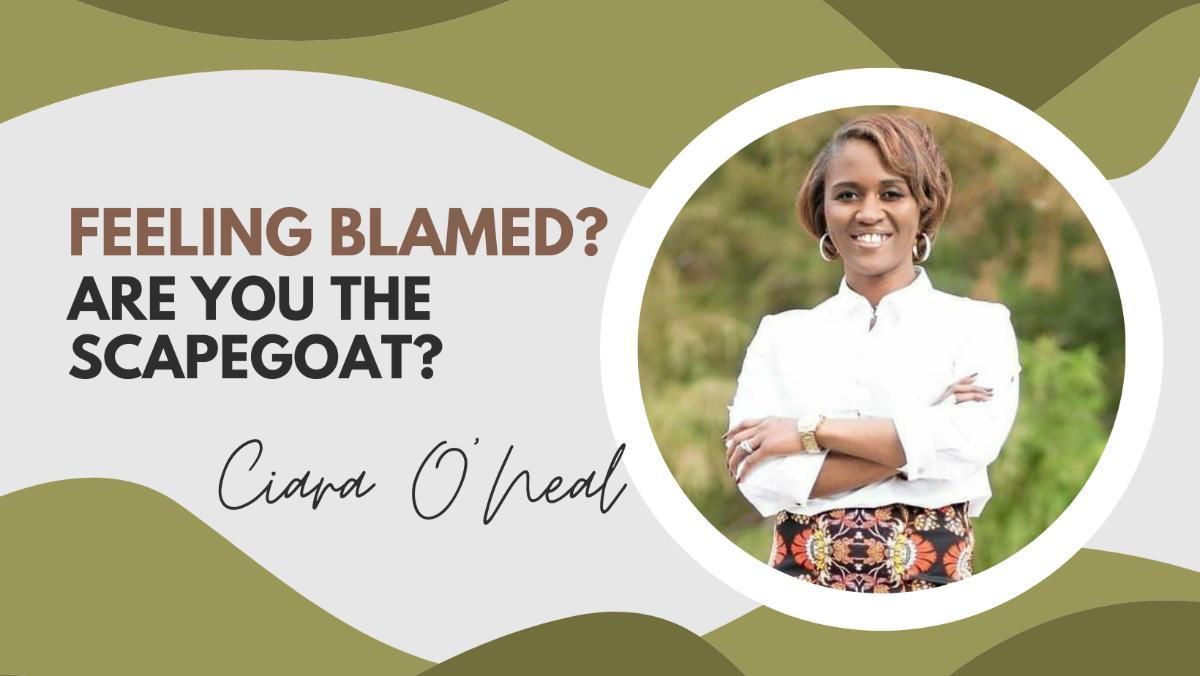Browse Our Blog Posts

When you think of a setback, do you see an insurmountable barrier, or an opportunity? Oftentimes, challenges that arise in our life can cause us to veer off of the path we were going on. This can be a relatively mild inconvenience, like when you forget to press “start” on the oven timer and the lasagna gets burnt to a crisp. Do you see this as a disaster? Do you think, “of course I messed it up, like always?” Or maybe, go into a panic, thinking “we’ll starve if there is no lasagna!” Or do you see it as an opportunity? Something like, “oh crap, I screwed up the lasagna… Well, now we can try that new Thai takeout down the street!” Sure, you may feel bummed out, annoyed at yourself, or sad because you really wanted lasagna, but the difference is whether you allow these feelings to continue and manifest into something deeper, or if you learn to accept the situation, shrug it off, and move on. This may be a silly example, but the underlying message rings true. Fact 1: The lasagna is inedible. Fact 2: You cannot un-burn said lasagna. Fact 3: Your reaction to the burnt lasagna will determine how the rest of your evening goes. Will you be angry, frustrated, or disappointed for the next several hours, or will you realize that stuff just happens sometimes, get your (equally delicious) Thai food, and order an automatic kitchen timer on Amazon while slurping noodles? You are “allowed” to be upset about the dinner path changing, but the difference is asking yourself what those feelings actually do for you? The facts are the same, regardless of your feelings about them. 90% of the time, a challenge or mistake in life unfortunately cannot be undone. The only control we have over the situation after the fact is how we react to it and move forward. Whether a small problem or a life-changing occurrence, the shift in mindset–or “reframing”–of these situations can have a huge impact on our wellbeing. I’m sure you’ve heard the statistics about stress leading to heart disease, high blood pressure, chronic fatigue, etc. But have you heard that other studies have shown stress to have a positive impact on us? The key difference is how we think about, or frame, stress in our lives. Those who believe stress is negative & harmful, will show signs of harm. However, those who frame stress as positive, i.e. as a motivator, a survival tool, etc., actually show positive health characteristics such as increased focus, increased blood flow, and the release of endurance hormones. As with most things in life, too much of something can have negative effects. The same rings true with chronic stress, but having the understanding that temporary stress is not inherently harmful can literally change the way your body reacts to it, and therefore not cause additional stress just from being stressed! Got it?? Things that happen in our external lives are sometimes out of our control, but most of what goes on in our internal lives can be modified. For example, seeing the need for a new dinner option as a chance to try something different. This type of mindset is applicable in many everyday “stressful” situations; in traffic, we can be angry about the slow downs, or we can see an opportunity to listen to a new Spotify podcast or playlist. At a restaurant, we can be frustrated & impatient that the kitchen is backed up, or we can see an opportunity to spend extra time chatting with the family/friends that joined us. Either way, our attitude about the situation will likely not change what is happening, but what it will do is affect our physiological responses to the situation, and our mindset/mood both during and after the situation has passed. Setbacks of any proportion, from small troubles like dinner & traffic, to life-altering challenges like a medical condition, have different impacts on our life. However, the mindset shift of “barrier” to “opportunity” rings consistent. Being angry at the world will not change a diagnosis; however, seeing a chance to become healthier & appreciate each day is life-changing in itself. Remember this quote from Brian Tracy: “A comeback is always stronger than a setback.” --Emily Hill, QMHP

Lets talk about mental health in the Hispanic community. Even though we have seen an increase of Hispanics tending to their mental health, I still find that there is continuous misconception that talking about your feelings and the acknowledgment of them is considered a weakness. Allow me to explain more: Being Hispanic myself, I grew up with the misinformation that if you go see a therapist, you are considered crazy and weak. No one really teaches us that our feelings are valid or that expressing ourselves is considered healthy. I grew up with the famous saying from my sitters, "you want to cry, I will give you something to cry about." It wasn't until I sought my own therapy as an adult where I learned how unhealthy it is to suppress your feelings, to avoid being "weak." Through therapy, I learned the importance of externalizing my feelings; and most and foremost, I finally felt that my feelings DID matter...YOUR feelings DO matter. I felt the responsibility as a Latina, to emmerse myself in the field and not only help people, but to further educate my community regarding the importance of mental health. Nothing makes me more proud when I see people getting the help they need, especially individuals from various ethnic backgrounds. Going to therapy is not a sign of weakness; however, it's a strive to better yourself, to enhance your self awareness and heal. Going to therapy is also setting the example to younger generations to view mental health with the same priority of going to the doctor. Let's break these cultural barriers and start the process of healing! ***Originally posted on Hispanic Culture and Therapy (counselingbypenny.com) ***

Do you ever find yourself feeling like the scapegoat of the group? This group can be your family, group of friends, or your work cohort. What is a scape goat, well this person is one the typically gets blamed for everything. They typically grow up in a dysfunctional family and go on to have similar relationships where they are the person that has to carry the load of everyone else’s anger, frustration, and so forth. It’s like they never have a chance, and after years of that being the case, who would be able to have any type of solid self-awareness. They’re often taken advantage of, ridiculed, and ignored which leads to developing a self-sabotaging personality and never reaching their full potential, because of these constant negative views and feelings embedded in their mind. Many can hold it together on the outside and put on a happy face then suffer in silence. To escape this situation, one has to have better self-awareness. Self-awareness starts with challenging cognitive distortions, also known as “stinking thinking,” that is developed over time. This can range from catastrophizing every little thing that happens, always taking things direct and personal, emotional reasoning, and constant labeling of yourself reinforces those negative and unhealthy behaviors. There are three steps to start the process of overcoming. For starters you have to first identify and acknowledge the irrational thoughts. Then ask yourself three simple questions. What evidence is there that makes this thought true? Am I assuming the worst? Are there other ways I can think about this situation or myself? Answering yes to at least one of these three questions jump starts the process of challenging these irrational thoughts and the path to peace. This third step may be hard to digest, but you are going to have to either finally cut some folks off, or distance yourself at minimum a solid 30 days. Yeah, I know sometimes, it’s hard especially when this includes family, a good friend, or even social media all together. But, when you step back and notice the constant negative energy and influence, they bring to the party, there is no way you can grow with them actively in your life. So that means some people may be annoyed and angry with you. But you have to put yourself first for once in your life, and screw what anyone else thinks, especially if that means your quality of life will improve. ***Originally posted on Feeling Blamed? Are you a scapegoat? (counselingbypenny.com) ***



